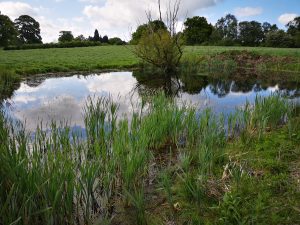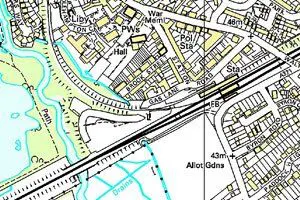Biodiversity Offsetting: Balancing Development with Conservation
In an era of unprecedented ecological challenges, biodiversity offsetting has emerged as a key tool for harmonising economic growth with environmental preservation. This approach seeks to balance the impact of development on nature, ensuring that any damage to one area is compensated by enhancement or protection of another. But what does biodiversity offsetting really entail, and how can it serve both development goals and conservation efforts?
Understanding Biodiversity Offsetting
Biodiversity offsetting is a process that seeks to compensate for the inevitable harm that development projects cause to biodiversity. This is achieved by ensuring that equivalent biodiversity gains occur elsewhere, thus “offsetting” the harm. In essence, it’s a system that encourages thoughtful development, promoting growth without compromising ecological integrity.
Why Biodiversity Offsetting is Crucial for Development
From the perspective of law firms, property agents, landowners, and property developers, biodiversity offsetting offers several benefits. Firstly, it can enhance the acceptance of development projects by local communities and planning authorities. A clear commitment to biodiversity offsetting demonstrates an understanding of environmental responsibility and contributes to the positive image of a project.
Moreover, biodiversity offsetting can facilitate smoother navigation through the planning system. Many planning authorities now require evidence of net positive outcomes for biodiversity from development projects. Having an offsetting plan in place can expedite this process and reduce the risk of costly delays.
The Conservation Angle
Biodiversity offsetting not only facilitates development but also promotes conservation goals. By requiring biodiversity losses to be compensated by gains elsewhere, it can result in the creation, enhancement, and long-term management of important habitats. Offsetting can therefore contribute significantly to local, regional, and even national conservation strategies.
Implementing Biodiversity Offsetting
Successful implementation of biodiversity offsetting requires careful planning and expert input. Key steps include accurately assessing the biodiversity present on a site before development, identifying appropriate offsetting measures, and monitoring the success of these measures over time.
It’s worth noting that biodiversity offsetting should not be seen as an alternative to avoiding harm to biodiversity where possible. It’s part of a ‘mitigation hierarchy’, where the first steps are always to seek to avoid harm, then minimise it, and only then to offset any remaining impact.
In conclusion, biodiversity offsetting represents a balanced approach to development that can meet both economic and ecological needs. It ensures that development can occur without sacrificing our precious natural environment, making it a critical consideration for all parties involved in the property development process.
If you are seeking expert guidance on incorporating biodiversity offsetting into your development plans or need assistance in creating and implementing an offsetting strategy, our team of ecological consultants is here to help. Please don’t hesitate to reach out to us for further information or to arrange a consultation.
In the realm of property development, protected species surveys are an indispensable part of the planning process. These surveys, which are designed to identify the presence of protected species on a site, are crucial for ensuring compliance with environmental legislation and promoting biodiversity. This article seeks to shed light on the importance of protected species…
In the modern era of property development and land management, environmental considerations are no longer optional – they are integral to successful project outcomes. For land agents, prioritising preliminary ecological appraisals is a key strategy for ensuring that the properties they represent align with the growing emphasis on sustainable and responsible development. Preliminary ecological appraisals,…
When planning a property development project, understanding the environmental implications is as important as the architectural and logistical aspects. Phase 1 habitat surveys play a vital role in this understanding, providing an essential foundation for effective project planning and execution. A phase 1 habitat survey is a standardised method for classifying and mapping habitats and…
A well-conceived habitat management plan has become an increasingly important part of responsible property development. Such a plan serves as a roadmap for maintaining, enhancing, and creating habitats for wildlife, while also enabling sustainable development. This article will delve into why a habitat management plan is not just beneficial but essential for today’s property developers,…
In an era where sustainable development and biodiversity conservation are becoming non-negotiable factors for businesses, ecology surveys have emerged as indispensable tools. Comprehensive ecology surveys, carried out by professional consultants, can provide valuable insights that directly contribute to your development project’s biodiversity net gain. An ecology survey is a systematic examination of a particular site…
Understanding the ecological value of a piece of land is of utmost importance, whether you’re a landowner looking to steward your land responsibly or a property developer planning a new project. One of the best ways to gain this understanding is through an ecology survey. Below, we explore the top five reasons why undertaking an…
Property developers are facing growing pressure to ensure their projects contribute to the conservation and enhancement of biodiversity. That’s where professional ecology services come into play. By leveraging expert guidance in the field of ecology, developers can plan and execute projects that not only respect local ecosystems but actively contribute to biodiversity net gain. Biodiversity…
In the era of rapid environmental change and biodiversity loss, it’s paramount for businesses and individuals alike to commit to enhancing biodiversity. This commitment, however, is not always straightforward to put into action. That’s where an ecology consultancy comes into play. A professional ecology consultancy is an essential partner for those looking to promote biodiversity…
For landowners navigating the complexities of responsible land stewardship in the 21st century, partnering with ecological consultants is not just a good idea—it’s a necessity. Ecological consultants bring a wealth of knowledge and expertise to land management, ensuring that land use and development adhere to both ecological principles and legal requirements. Ecological consultants provide crucial…
In today’s world, where the environment and sustainable practices are not just buzzwords but necessary components of business strategies, the importance of an ecological consultancy has grown exponentially. An ecological consultancy brings the crucial balance between property development and nature conservation, ensuring that the needs of businesses align with the welfare of the environment. One…






